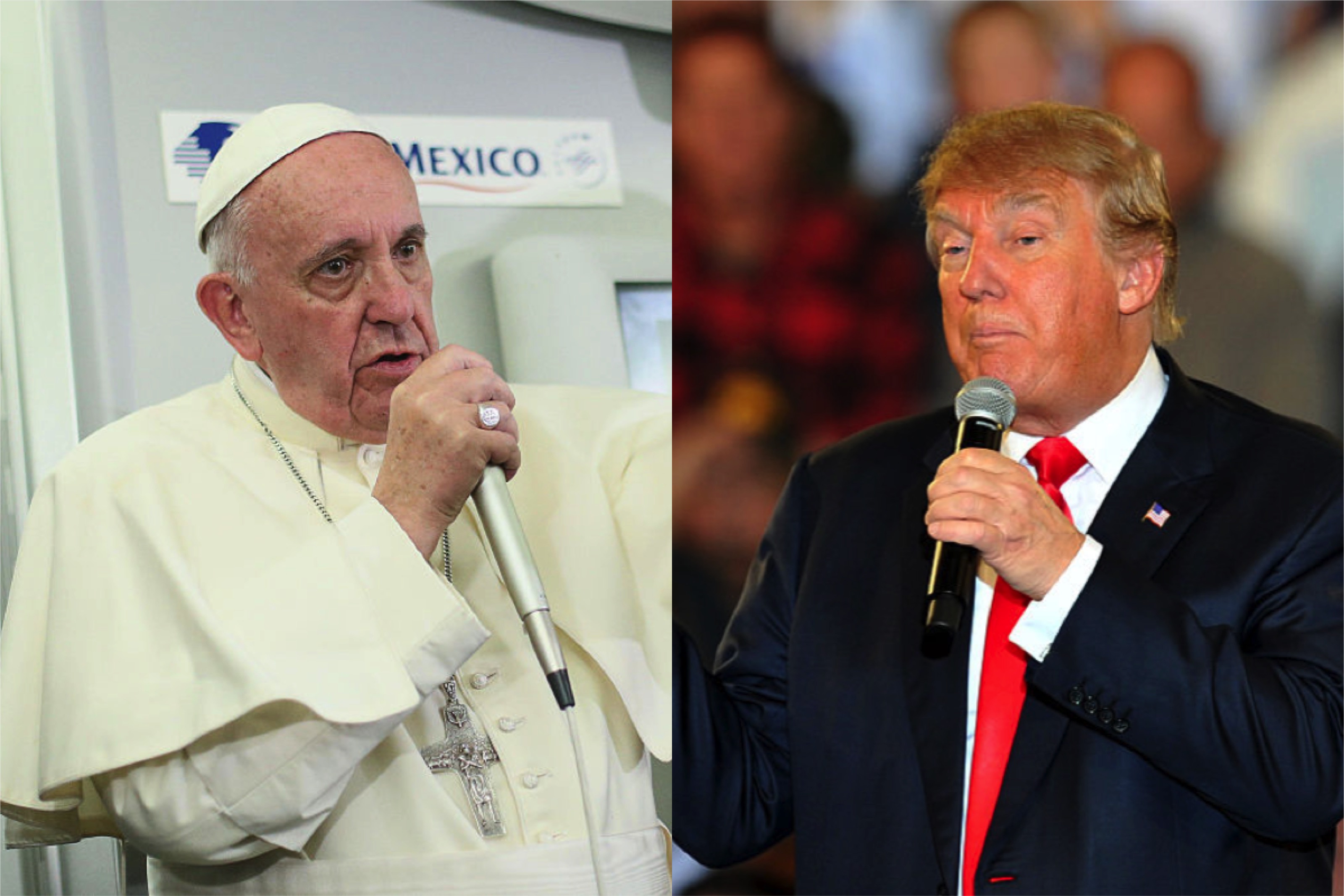Donald Trump hits back at Pope Francis over 'not Christian' comment, but religious scholars call it fair game


A free daily email with the biggest news stories of the day – and the best features from TheWeek.com
You are now subscribed
Your newsletter sign-up was successful
Pope Francis and Donald Trump have some things in common: Both control prime pieces of real estate and priceless works of art, both claim to care for the working class, both men wear white.... But, as became clear Thursday, the pope and the GOP presidential frontrunner differ in their interpretation of the gospels. That isn't too unusual for a Catholic and Protestant, but this high-profile spat, in the middle of a heated presidential primary, is pretty remarkable.
Responding to Trump's words about building a wall along the U.S.-Mexican border and deporting 12 million immigrants, the pope said "this man is not Christian if he has said things like that.... This is not the gospel." Trump said it was "disgraceful" for the pope to "question another man's religion or faith" and affirmed his Christianity. "If and when the Vatican is attacked by ISIS," Trump added, the pope will "have only wished and prayed that Donald Trump would have been president."
Trump's GOP rivals mostly steered clear of the dispute, but religious scholars suggested that the pope had raised a fair question about Trump's policies, if not his personal faith. "'Is the Pope Catholic?’ is a joke used to emphasize when something is blindingly obvious," Luke Bretherton, a professor of theological ethics at Duke Divinity School, said in a statement. "That the question 'Is Donald Trump a Christian?' is not a joke but a serious question should tell us something." He added:
The Week
Escape your echo chamber. Get the facts behind the news, plus analysis from multiple perspectives.

Sign up for The Week's Free Newsletters
From our morning news briefing to a weekly Good News Newsletter, get the best of The Week delivered directly to your inbox.
From our morning news briefing to a weekly Good News Newsletter, get the best of The Week delivered directly to your inbox.
That Pope Francis raises a question about whether certain political views are compatible with Christian belief and practice or not is wholly appropriate and something Christian leaders in North America, whether Democrat or Republican, seem all too happy to pronounce on on a regular basis. When politicians parade their faith as a vote-winning strategy, they necessarily invite comment on the status and coherence of their faith commitments with their political positions.
Bretherton's colleague Paul Griffiths, a professor of Catholic theology, was a bit more nuanced: "Donald Trump's proposal isn't consistent with deep Christian understandings of the movements of peoples across border; that, in turn, is perfectly consistent with Trump himself being a Christian — which is to say someone baptized in the triune name."
Slamming the pope isn't expected to hurt Trump in Saturday's primary in South Carolina, where 65 percent of the 2012 GOP primary voters were evangelical Christians and only 13 percent were Catholic. It could hurt him in the delegate-rich, heavily Catholic states in the Northeast.
A free daily email with the biggest news stories of the day – and the best features from TheWeek.com
Peter has worked as a news and culture writer and editor at The Week since the site's launch in 2008. He covers politics, world affairs, religion and cultural currents. His journalism career began as a copy editor at a financial newswire and has included editorial positions at The New York Times Magazine, Facts on File, and Oregon State University.
